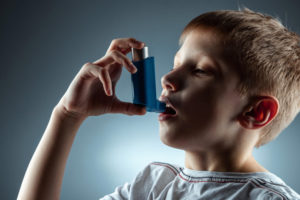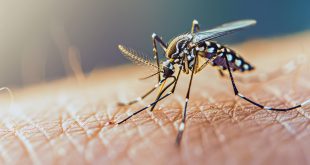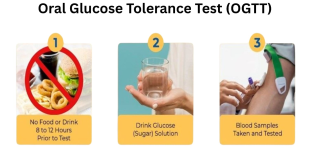 Asthma is characterized by airway inflammation, increased airway sensitivity and airflow obstruction leading to breathing difficulty. It makes children hard to breathe, and it does not always cause symptoms. Many infants start wheezing early in life, but three of four school-aged children outgrow asthma by adulthood. Children with asthma experience complete remission more frequently than adults. The natural history of asthma is variable and difficult to predict for a particular individual.
Asthma is characterized by airway inflammation, increased airway sensitivity and airflow obstruction leading to breathing difficulty. It makes children hard to breathe, and it does not always cause symptoms. Many infants start wheezing early in life, but three of four school-aged children outgrow asthma by adulthood. Children with asthma experience complete remission more frequently than adults. The natural history of asthma is variable and difficult to predict for a particular individual.
What are the symptoms of asthma?
The classic signs and symptoms of asthma are intermittent dyspnea, cough, and wheezing. Sometimes there are non-specific symptoms that make it difficult to distinguish asthma from other respiratory diseases. Symptoms might occur each day, each week, or less often. Asthma symptoms include:
Wheezing, or noisy breathing
Coughing, often at night or early in the morning, or when exercising
Chest tightness
Breathing difficulty
Is there a test for asthma?
Yes. There is a breathing test to see how the lungs are working. Most children who are six years and older can do this test. This test is useful, but it is often normal in children with asthma if they have no symptoms at the time of the test.
Is asthma treatable?
There are different medicines for asthma. These medicines can be inhalers, liquids, or pills. Asthma medicines work in one of two ways:
Quick-relief medicines stop symptoms quickly. These medicines should only be used once in a while and during asthma attack. If your child regularly needs these medicines more than twice a week, or if symptoms come back quickly, or do not get better, you need to see your doctor. Some children get hyperactive and have trouble staying still after taking these medicines.
Long-term controller medicines control asthma and prevent future symptoms. If your child has frequent symptoms or several severe episodes in a year, he or she might need to take this controller medicine each day. Doctor will decide the duration and dose of medicine.
What if asthma is misdiagnosed/not treated?
Asthma that is not treated or misdiagnosed can:
Prevent children from doing normal activities, such as playing sports
Your child may miss school and have low grades
Gradually damage the airway and lungs.
Can asthma symptoms be prevented?
Yes. We can prevent asthma symptoms by giving daily medicine as prescribed. Keep the child away from the things that make him worse. These are called triggers. Common triggers are:
• Avoid getting cold or the flu (it’s good to get a flu shot each year)
• Avoid allergens (such as pollens from trees, grasses, and weeds, dust mites, molds; furry animals, including cats and dogs)
• Parents should avoid cigarette smoking
• Take precaution during change in weather and temperature
Will my child be healthy in adulthood?
Most children with asthma will have normal healthy lives. Sometimes, asthma gets better as children get older. The symptoms might disappear when they become adults, but some children can still have asthma when they grow up.
 Medicosnext
Medicosnext


